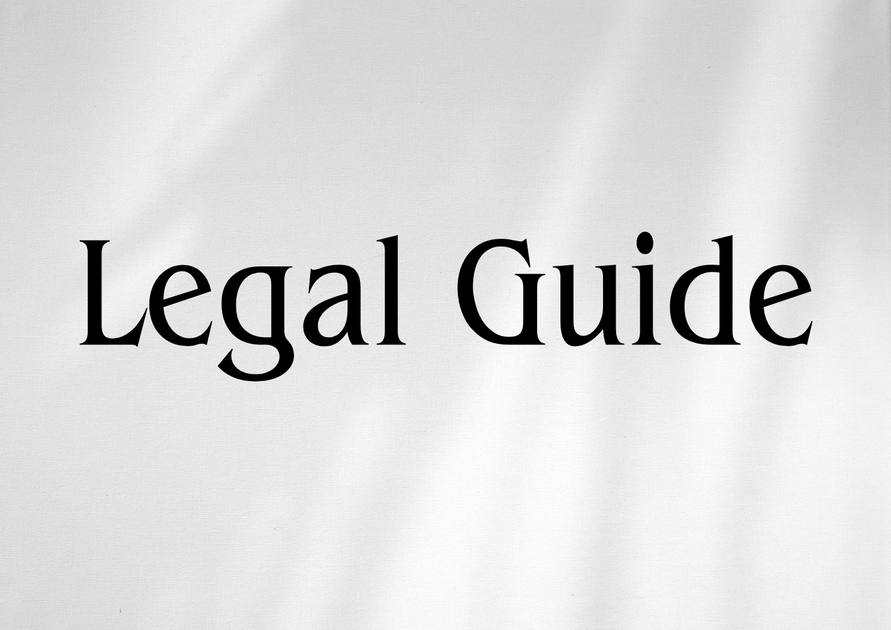Introduction
As Qatar’s economy continues to expand and diversify, dispute resolution mechanisms have taken on heightened significance for both domestic and international business interests. Arbitration, in particular, is increasingly favored by multinational corporations, investors, and contractors seeking to circumvent the lengthy processes and unpredictability often associated with traditional litigation. For UAE-based entities, awareness of how Qatar’s arbitration institutions operate is crucial, especially given the growing commercial ties across the Gulf and the recent legal evolutions shaping the GCC’s arbitration framework. Understanding these mechanisms offers businesses in the UAE a distinct advantage — providing clarity, strategic leverage, and the assurance of streamlined legal compliance.
This article aims to provide a comprehensive, consultancy-grade analysis of arbitration institutions in Qatar. It will address the relevant statutory architecture, institutional frameworks, practical operational insights, compliance risks, and proactive strategies for UAE companies seeking to operate or resolve disputes in Qatar. The analysis references known statutory sources and highlights recent developments that may impact UAE stakeholders, including updates connected to the Qatari Arbitration Law and its alignment with international standards. By the end of this article, UAE enterprises, executives, and legal professionals will gain actionable guidance for leveraging Qatar’s arbitral institutions both as a shield and a sword in their regional business strategy.
Table of Contents
- Overview of Arbitration Law in Qatar
- Institutional Landscape: Main Arbitration Centres in Qatar
- Legal Framework: The Qatari Arbitration Law
- Qatar and UAE Arbitration Institutions: A Comparative Perspective
- Practical Considerations for UAE Businesses
- Compliance Risks and Strategies
- Case Studies and Hypotheticals
- Future Trends and Professional Recommendations
- Conclusion: Navigating the Future of Arbitration in Qatar
Overview of Arbitration Law in Qatar
The Growing Economic Relevance of Qatar Arbitration
Arbitration is increasingly pivotal in Qatar’s legal and commercial environment. Its adoption is particularly pronounced in sectors such as construction, energy, infrastructure, and financial services—each of which attracts significant cross-border participation from UAE-based companies and investors. The Qatari government’s sustained efforts to foster a business-friendly ecosystem are underpinned by the drive to modernize its dispute resolution frameworks, making arbitration a key component of its international economic policy.
Foundational Legal Developments
The evolution of arbitration in Qatar is closely linked to its legislative commitment to align domestic practices with global standards—most notably, via Law No. (2) of 2017, otherwise known as the “Qatari Arbitration Law”. This law, modeled substantially on the UNCITRAL Model Law on International Commercial Arbitration, was a significant departure from the previous legislative patchwork that governed arbitral procedures in Qatar.
Institutional Landscape: Main Arbitration Centres in Qatar
Arbitral institutions play a crucial role by administering, supervising, and enforcing arbitral processes. Several specialized institutions operate within Qatar, offering tailored services to meet the varied needs of local and international stakeholders.
Main Arbitration Centres
| Institution | Year Established | Key Focus Areas | International Affiliation |
|---|---|---|---|
| Qatar International Centre for Conciliation and Arbitration (QICCA) | 2006 | Commercial, construction, investment, shipping disputes | Affiliated to Qatar Chamber of Commerce and Industry |
| Qatar Financial Centre (QFC) Civil and Commercial Court & Dispute Resolution Centre | 2005 | Financial, civil, and commercial disputes | Operates under QFC Regulatory Authority |
| Gulf Cooperation Council Commercial Arbitration Centre (GCCCAC, Bahrain-based) | 1995 | GCC-wide commercial disputes, including parties from Qatar | Regional GCC body |
| International Chamber of Commerce Qatar (ICC Qatar) | 2013 | International commercial arbitration | ICC Paris |
QICCA: The Leading Domestic Arbitral Body
Founded under the auspices of the Qatar Chamber of Commerce and Industry, QICCA provides specialized arbitration rules, trained arbitrators, and dedicated facilities. Its domestic prominence has grown steadily, particularly as the Qatari Arbitration Law introduced clearer frameworks and supportive judicial oversight.
QFC Dispute Resolution Centre
The QFC Dispute Resolution Centre operates within the financial free zone, appointing specialist arbitrators and offering effective mechanisms for enforcement of awards within the QFC regime and, increasingly, in the wider Qatari legal system.
International Arbitration Options
Qatar-based parties, especially those with cross-border business relationships, regularly turn to ICC Qatar and the GCCCAC to leverage international procedural standards, neutrality, and enforceability.
Legal Framework: The Qatari Arbitration Law
Statutory Foundation: Law No. (2) of 2017
The Qatari Arbitration Law (Law No. (2) of 2017) is the principal legislative text governing arbitration procedures in Qatar. It applies to commercial disputes, both domestic and international. This statute is notable for its broad embrace of international best practices and its overall harmonization with the UNCITRAL Model Law.
Key Features of the Qatari Arbitration Law
- Arbitration Agreement Validity: Written form is mandatory; emails and electronic communications are recognized as acceptable evidence.
- Party Autonomy: Parties may determine procedures, appoint arbitrators, set seat and language, and agree on institutional or ad hoc arbitration.
- Reduced Judicial Intervention: Limitation on court interference; exceptions are spelled out for nullity cases, enforcement, or procedural assistance.
- Interim Measures: Tribunals have broad powers to issue urgent or provisional orders.
- Recognition and Enforcement of Awards: Streamlined procedures for enforcement through Qatari courts, with few substantive grounds for challenge.
- Alignment with International Enforcement Regimes: Qatar is party to the 1958 New York Convention, simplifying the reciprocal enforcement of arbitral awards.
Official References
The full text of Law No. (2) of 2017 is available in Arabic on the Qatar Ministry of Justice website. The State of Qatar’s status as a party to the New York Convention can be verified with the United Nations’ official list of state parties.
Recent Regulatory Updates
Amendments in administrative rules and practices are periodically introduced to further streamline processes—especially around the enforcement of foreign awards in Qatari courts and expanded recognition of digital signatures. While no sweeping revisions have been passed as of 2024, practitioners should monitor updates from the Official Gazette and Ministry of Justice portals for evolving technical requirements.
Qatar and UAE Arbitration Institutions: A Comparative Perspective
The shared drive among GCC states to modernize their arbitral institutions is reflected in the parallel reforms undertaken in both Qatar and the UAE. For UAE stakeholders, understanding these similarities and differences is essential for cross-border engagement and risk assessment.
| Aspect | Qatar: QICCA / Qatari Law | UAE: DIAC / Federal Law No. 6 of 2018 |
|---|---|---|
| Model Law Basis | UNCITRAL Model Law (Law No. 2/2017) | UNCITRAL Model Law (Fed. Law No. 6/2018) |
| Recognition of Electronic Agreements | Yes (explicitly recognized) | Yes (explicitly recognized) |
| Institutional Choices | QICCA, QFC DRC, ICC Qatar, GCCCAC | DIAC, ADCCAC, DIFC-LCIA (until 2021), ICC UAE |
| Judicial Support | Qatari Civil Courts (Commercial Court for QFC) | UAE Onshore and Offshore Courts |
| Enforcement of Foreign Awards | New York Convention (since 2003) | New York Convention (since 2006) |
| Language Flexibility | Parties may choose; default Arabic | Parties may choose; default Arabic/English (DIFC) |
| Appeals/Setting Aside | Limited to procedural irregularities/nullity | Limited, primarily procedural matters |
Practical Considerations for UAE Businesses
Choosing an Institution and Governing Law
- Commercial Contract Drafting: Clear and enforceable arbitration clauses are a must; define seat, institution, and choice of law to avoid future jurisdictional confusion.
- QICCA or ICC Qatar? QICCA is often favored for contracts principally governed by Qatari law; ICC Qatar is advantageous if global neutrality or in-depth procedural resources are desired.
- QFC DRC: Considered when disputes may link to QFC entities or financial transactions.
Enforcement of Awards
Both Qatar and UAE courts recognize New York Convention awards; however, subtle differences in public policy exceptions and the technicalities of court enforcement need meticulous attention in cross-border matters. Immediate counsel with on-the-ground legal experts in the target jurisdiction is strongly advised during enforcement stages.
Language of Proceedings
Ensure contract provisions specify the language of arbitration. QICCA rules allow for party choice, but the default is Arabic, which may impact documentary evidence and testimony. Use bilingual documents and official translations where necessary to pre-empt administrative delays or disputes.
Selection and Appointment of Arbitrators
- Pre-agreeing on a panel or criteria for appointment helps avoid institutional delays, particularly in fast-track contract delivery sectors like construction and energy.
- Consider including explicit references to nationality, sector expertise, and linguistic abilities.
Compliance Risks and Strategies
Potential Pitfalls for UAE Companies
Legal non-compliance in arbitration can take several forms, each posing unique risks:
- Improperly Drafted Arbitration Clauses: Vague or contradictory clauses risk judicial nullification — resulting in cost, delay, or litigation exposure.
- Non-adherence to Institutional Rules: Failing to follow QICCA, QFC, or ICC Qatar procedures may lead to award challenge or enforcement refusal.
- Enforcement Technicalities: Incomplete documentation, lack of proper translation, or improper service protocols can obstruct award recognition in Qatari courts.
- Public Policy Caveats: Awards contrary to Qatari public policy (often undefined) may be invalidated at the enforcement stage.
Compliance Checklist: Arbitration in Qatar
| Compliance Area | Best Practices |
|---|---|
| Arbitration Agreement | Use unambiguous wording; specify institution, seat, language, and law |
| Appointment of Arbitrators | Pre-agree process or panel; check institution’s rules and impartiality requirements |
| Procedural Adherence | Strictly follow the chosen centre’s rules from notice to final award |
| Documentary Formalities | Prepare certified translations; notarize key documents |
| Legal Representation | Engage qualified counsel familiar with Qatari procedures |
Suggestion: Place a process flowchart of “From Dispute Submission to Award Enforcement in Qatar” for maximum clarity.
Case Studies and Hypotheticals
Case Study 1: Dispute over a Construction Contract
Scenario: A UAE-based engineering firm enters into a Qatari joint venture. The contract designates QICCA as the arbitration forum but is silent on language. During proceedings, the Qatari side insists on Arabic documentation, creating costly delays.
Analysis: This example underscores the need to specify language in arbitration clauses and ensure dual-language document preparation from the outset.
Case Study 2: Delayed Enforcement of ICC Award
Scenario: A Dubai investor secures a favorable ICC award against a Qatari counterparty. Enforcement stalls in Qatari court due to incomplete translation of the award and supporting evidence.
Analysis: Enforcement in Qatar demands procedural perfection. Every document submitted—including the original award and affidavits—must be translated by a certified translator and notarized. Local legal oversight is crucial at every step.
Case Study 3: Use of GCCCAC for Regional Dispute
Scenario: Multiple GCC parties select GCCCAC in Bahrain for a commercial arbitration involving assets in Qatar.
Analysis: Regional institutions can provide neutrality. However, the actual enforceability of awards in Qatar depends on compliance with New York Convention procedures and local public policy standards.
Future Trends and Professional Recommendations
Key Trends in Qatar’s Arbitration Landscape
- Digital Transformation: Courts and institutions introducing e-filing and virtual hearings after the pandemic era.
- Expanding Sectors: Sector-specific rules (notably in energy and infrastructure) are being iteratively developed to address growing complexity.
- Strategic Litigation Financing: Third-party funding rules are under discussion, with greater scope for non-party involvement in large-scale disputes.
- Enhanced Institutional Collaboration: Cross-accreditation and cooperation agreements between Qatari and UAE centres expected to continue, boosting mutual recognition.
Consultancy Insights: Best Practices for UAE Companies
- Engage specialist counsel for arbitral clause drafting to minimize ambiguities.
- Undertake regulatory due diligence on institutional rules at the contracting stage—not just post-dispute.
- Favor institutions and rules offering maximum procedural clarity and enforceability.
- Maintain ongoing relationships with Qatari legal professionals for real-time updates on regulatory developments.
- Actively participate in institutional training and seminars—QICCA and ICC Qatar regularly host sector briefings for arbitrators and counsel.
Conclusion: Navigating the Future of Arbitration in Qatar
The modernization of arbitration institutions in Qatar, coupled with robust legislative reform, has significantly enhanced the country’s profile as a dispute resolution hub in the Gulf. For UAE companies, this presents both expanded opportunity and increased complexity. By proactively engaging with the nuances of Qatar’s arbitration laws, vetting contract terms, and leveraging the expertise of regionally specialized counsel, businesses can confidently pursue commercial objectives while minimizing legal risk.
Going forward, anticipated shifts—ranging from digitization to the increasing cooperation among Gulf arbitral institutions—will further solidify Qatar’s stature as a crucial forum for dispute resolution. UAE stakeholders are urged to monitor regulatory changes, invest in continuous compliance training, and seek dynamic advisory partnerships to maintain competitive, compliant operations in the region.
Legal compliance is not static: it is an ongoing investment in business resilience. In the evolving context of Qatar’s arbitration landscape, strategic foresight and rigorous process management distinguish proactive businesses from reactive ones—and in so doing, underpin sustainable commercial success across the GCC.



